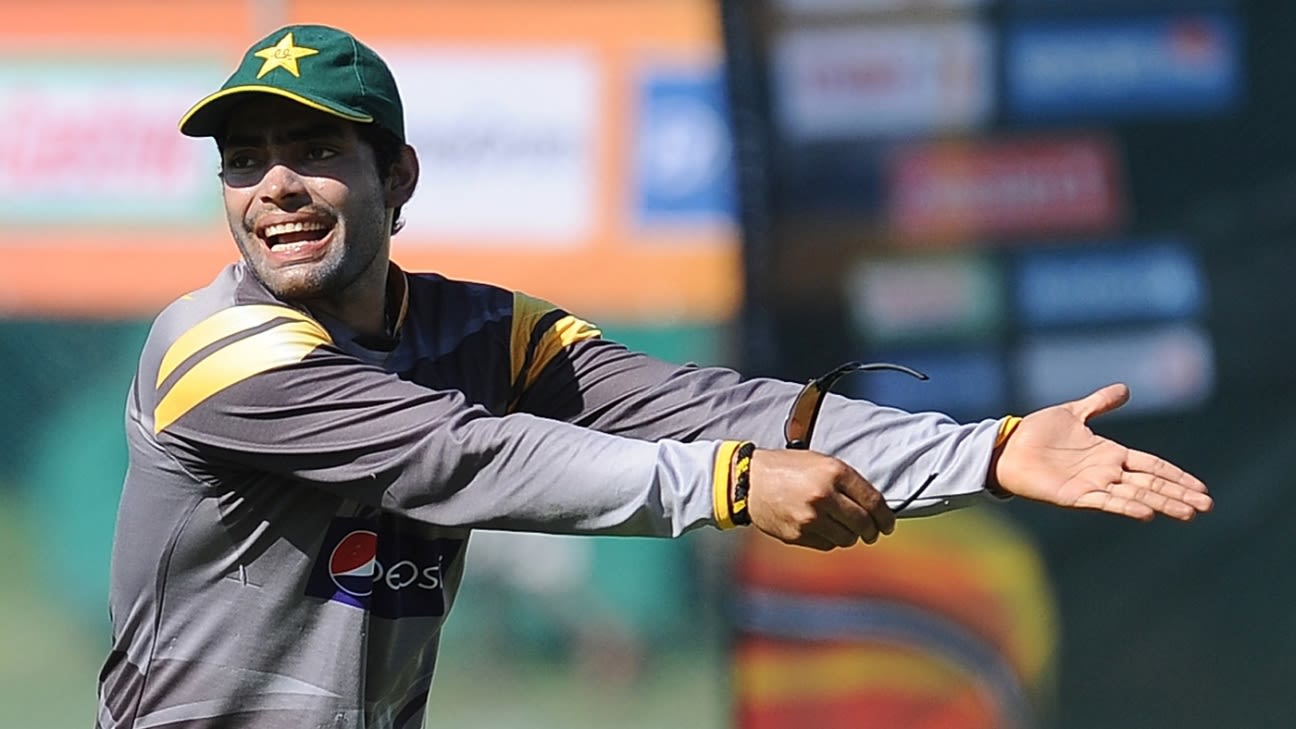Umar Akmal has filed an official appeal against the three-year ban imposed on him by the PCB, challenging the length of the sanction and hoping to get it reduced. Akmal was expelled from all representative cricket after he he failed to report details of corrupt approaches made to him ahead of this year’s PSL.
The PCB confirmed the receipt of Akmal’s appeal and will form a panel of independent adjudicators to hear the case. According to the PCB’s code, the panel will not conduct a de novo (fresh) hearing, but instead limit itself to “a consideration of whether the decision being appealed was erroneous.”
Akmal was charged by the PCB on two counts of breaching its anti-corruption code, and while each charge carries a three-year ban, they are being run concurrently.
It is understood that Akmal maintained in his appeal that the three-year ban was unprecedented, and that other players committing similar offences had been let off with lesser punishments – Mohammad Irfan was banned for six months (reduced from one year for cooperating with the PCB’s investigation in 2017, while Mohammad Nawaz picked up a two-month ban soon afterwards. In a recent example from outside Pakistan, Shakib Al Hasan – among the senior-most players in Bangladesh cricket – was banned for two years with one year of that sentence suspended.
In the Akmal case, the judge observed that the player had failed to give any plausible explanation for not reporting the matter to the PCB’s vigilance and anti-corruption departments and was in breach of article 2.4.4, and he would be deemed to be engaged in corrupt conduct under the anti-corruption code of the PCB. It was also recorded that Akmal didn’t show any remorse and hadn’t cooperated with investigating authorities.
In other previous cases, players got lesser punishments as a result of admitting to their mistakes and agreeing to the imposed sanctions.
